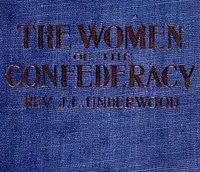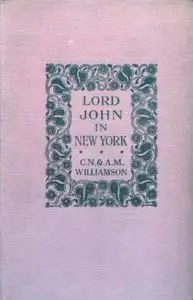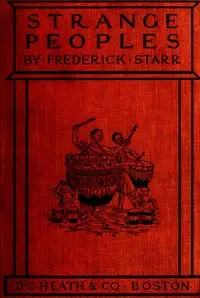"One of Our Conquerors — Volume 1" by George Meredith immerses readers in the world of Victor Radnor, a refined man in London dealing with life's moral puzzles. The story, set in a time of shifting social norms, investigates what it means to climb the social ladder, experience love, and balance personal desires with societal pressures. As Victor journeys across London Bridge, the story shows his observant nature and awareness of social ranks through encounters with people from all walks of life, including a confrontational worker. His memories of his daughter, Nesta, and the troubled relationship with Mrs. Burman reveal a man struggling with past choices. Victor tries to attain personal happiness while navigating the complex expectations of his time. Readers are invited into a world full of complicated relationships, grand ambitions, and the underlying strains of London life.

One of Our Conquerors — Volume 1
By George Meredith
Amidst London's changing landscape, a man wrestles with love, ambition, and the weight of societal expectations as he seeks his place in the world.
Summary
About the AuthorGeorge Meredith was an English novelist and poet of the Victorian era. At first, his focus was poetry, influenced by John Keats among others, but Meredith gradually established a reputation as a novelist. The Ordeal of Richard Feverel (1859) briefly scandalised Victorian literary circles. Of his later novels, the most enduring is The Egoist (1879), though in his lifetime his greatest success was Diana of the Crossways (1885). His novels were innovative in their attention to characters' psychology, and also portrayed social change. His style, in both poetry and prose, was noted for its syntactic complexity; Oscar Wilde likened it to "chaos illumined by brilliant flashes of lightning". Meredith was an encourager of other novelists, as well as an influence on them; among those to benefit were Robert Louis Stevenson and George Gissing. Meredith was nominated for the Nobel Prize in Literature seven times.
George Meredith was an English novelist and poet of the Victorian era. At first, his focus was poetry, influenced by John Keats among others, but Meredith gradually established a reputation as a novelist. The Ordeal of Richard Feverel (1859) briefly scandalised Victorian literary circles. Of his later novels, the most enduring is The Egoist (1879), though in his lifetime his greatest success was Diana of the Crossways (1885). His novels were innovative in their attention to characters' psychology, and also portrayed social change. His style, in both poetry and prose, was noted for its syntactic complexity; Oscar Wilde likened it to "chaos illumined by brilliant flashes of lightning". Meredith was an encourager of other novelists, as well as an influence on them; among those to benefit were Robert Louis Stevenson and George Gissing. Meredith was nominated for the Nobel Prize in Literature seven times.



















